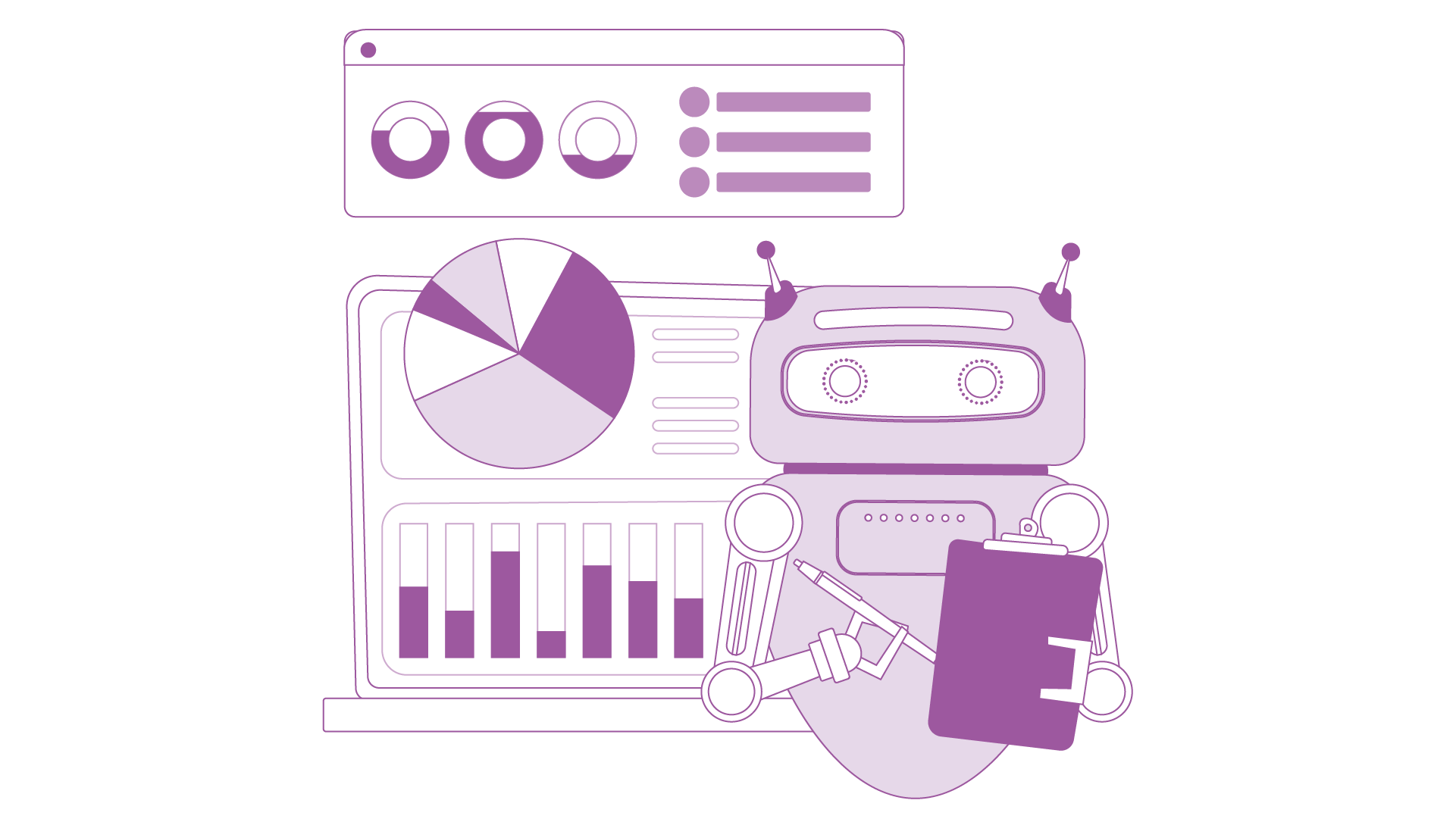Digital transformation explained simply - Examples & Significance
What does digital transformation mean? Simply put, digital transformation stands for the digitalization of processes and products. But it’s about more than just the digital collection, processing and consolidation of data. Transformation stands for change and means that processes, products and the organization in the company are adapted to digital developments. This means that new products and services are being developed. Old processes are replaced by new ones and existing ones are optimized.
Digital transformation in companies - why?
The digital transformation did not happen out of the blue. Rather, it is a process that has emerged as a result of the rapid development of new and digital technologies. In order to remain competitive, every company will soon be forced to rethink and revise its own processes. In order to meet the needs of future customers and partners, companies will also have to find out about services and products that are in high demand. In some cases, processes will have to be fundamentally replaced and products taken off the market. Sounds like a lot of change, which not every company will be able to cope with. However, the digital transformation also creates many new opportunities, such as new resources. By automating and speeding up processes, tedious manual tasks within the company can be dispensed with. There is room for more creativity, innovation, deeper analyses and more reliable forecasts. And we will need these in view of the new volume of complex data.
Difference between digital transformation and digitalization
Digital transformation is often simply equated with the term digitalization. However, transformation goes much further than digitization. In simple terms, “digitalization” means the mapping of data in a digitally readable form and thus the automation and acceleration of business processes in order to make them more efficient.
Digital transformation, on the other hand, deals with the process of changing business models and the value chain in companies. In addition to changing existing processes, new processes are created and new digital products are developed.
Types of digital transformation
Digital transformation affects the entire company. We show what types of digital transformation there are and how digitalization can be seen in the various processes.
Cultural and organizational transformation
It’s actually quite simple: in order for processes to be revised in the context of digital transformation, the work processes in which brainstorming, management, development and decision-making take place must first change. The The keyword here is digital project management. More and more companies have created automated work processes in order to work together more efficiently. A classic example is probably the shared project tool for the shared calendar, shared real-time dashboards and task assignments. But data collection tools and cloud-based controlling software, which obtain data from all departments and store it centrally, also provide the necessary overview of your company’s developments and reflect supply and demand in real time.
Digital transformation of business processes
Digital transformation of production
The production sector is probably undergoing the biggest transformation. This is why the digital transformation is also known as “Industry 4.0”. Thanks to new developments, today’s machines are becoming increasingly interconnected. By implementing IoT sensors, they provide us with data that helps us to better monitor, evaluate and optimize production processes. In addition, the newly acquired data helps with the maintenance of existing machines and the development of new machines.
Other examples of the digital transformation in production include robots that take over manufacturing tasks, 3D printing to produce prototypes and machine learning to reduce downtime and ensure smooth production processes.
The digital transformation ensures higher productivity, faster manufacturing and machining processes and increasingly self-controlled production.

Digitizing purchasing and inventory
The digital transformation also has some advantages in the area of procurement: In the future, it will be increasingly important to manage suppliers digitally. The digital storage of contracts, offers and reports will improve order processing, data exchange and transparency, particularly with regard to compliance.
Thanks to digital purchasing platforms, companies can also better evaluate and compare suppliers and purchase prices. Automatic stock levels ensure that stocks are always kept in view and orders are placed on time.
Often underestimated: The transformation of financial processes
In order to be able to plan strategically and comprehensively, a company needs to network all departmental data, especially data from the finance department. This is because costs play a central role in all company decisions. To this end, digital tools are increasingly being used to automatically record documents, automate bookkeeping processes and accounting and automatically generate financial reports. The result: you gain an overview of your finances and you are able to plan your budgets precisely. The use of BI tools enables the most accurate forecasts and target/actual planning to ensure holistic controlling.

Automated sales and marketing processes
To improve the customer experience, companies are increasingly turning to software as a service. On self-management platforms, customers can act independently according to their needs and at their own pace. The advantage for companies: You can provide your service even more effectively, are available to your customers around the clock and strengthen customer loyalty.
With the help of digital customer management, companies can view all of their customers’ information at a glance and personalize their marketing. If the digital customer database is linked to modern marketing tools, necessary marketing measures such as sending newsletters are carried out almost automatically.

Digital business model
As we now know, digital transformation is not just about digitizing processes within the company, but also about developing new digital products or creating new processes within the company. For example, software-based products and services are increasingly being offered alongside conventional products.
Examples of digital services and products:
- Mobile apps for shopping and delivery services
- Robo-Advisor
- Medical apps for monitoring health and self-managementDigitale Magazine
- Streaming services
- Automatic spare parts supply
- Smart home devices
- Online booking platforms
- Virtual tours
- Apps for planning and advice in everyday life

Advantages of digital transformation
In addition to all the effort that many managers are currently putting into restructuring their company, they are being presented with many new opportunities that will take their business to a whole new level:
- Faster decisions
- Higher decision quality
- Precise forecasting
- More efficient cost controlling
- Increased productivity
- Lower costs thanks to forward-looking planning and fewer staff
- Higher profits
- Stronger customer loyalty
- New target groups through new services and products
- Greater security and flexibility in times of crisis
The restructuring to software-supported processes is completely changing controlling, which is particularly important in times of crisis. The fact that all company-relevant data can be recorded directly in the software means that companies are always planning with up-to-date figures. This also enables them to carry out ad hoc planning and compare planned and actual values on a rolling basis.
The digitalization of data collection reduces processes such as operational planning and budgeting to just a few days. This saves companies weeks of time-consuming planning cycles and corrections to outdated data. They save time, of which we have less and less these days, and reduce errors in their planning. A basic prerequisite for reliable decisions. In addition to the economic success that goes hand in hand with this, digital transformation also enables companies to increase the efficiency of all their planning processes many times over and to exploit the full potential of their teams. An important criterion in times of skills shortages.


